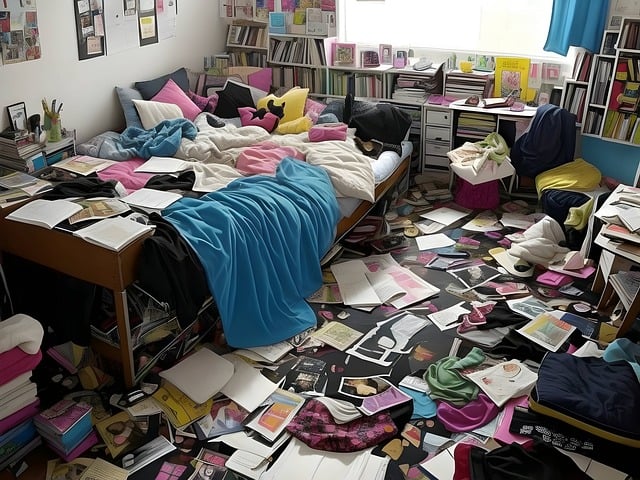
Ever wonder why we clutter? The psychology behind clutter is complex and can vary from person to person, but here are eight factors that contribute to why people accumulate and struggle with clutter:
- Attachment and Sentimentality: People often form emotional attachments to objects, associating them with memories, relationships, or significant life events. Letting go of these items may feel like letting go of a part of themselves or their past.
- Fear of Waste or Loss: Some individuals have a fear of wasting resources or money, leading them to keep items they no longer need or use in the belief that they might find a use for them in the future. This fear can be rooted in a scarcity mindset.
- Decision-Making Challenges: Sorting through possessions and deciding what to keep and what to discard can be mentally taxing. Decision fatigue, perfectionism, or a lack of organizational skills can contribute to the accumulation of clutter.
- Procrastination: Procrastination can result from a lack of motivation, feeling overwhelmed, or a tendency to prioritize short-term rewards over long-term benefits.
- Consumer Culture: Living in a consumer-driven society can contribute to the accumulation of belongings. Constant exposure to advertisements and societal pressure to acquire more possessions can lead to impulsive buying and the accumulation of unnecessary items.
- Stress and Coping Mechanism: Clutter can be a physical manifestation of internal stress or emotional turmoil. Some people use the act of acquiring and holding onto possessions to cope with stress, anxiety, or other emotional challenges.
- Perceived Value: Some people may overvalue their possessions, believing that they are more valuable or useful than they are. This overvaluation can make it difficult for them to part with items.
- Lack of Time and Energy: Individuals may lack the time and energy required to regularly declutter and organize their living spaces.
Addressing clutter often involves a combination of psychological insights, behavioral changes, and practical strategies. Professional organizers and therapists can be valuable in assisting individuals in understanding and overcoming the psychological barriers associated with clutter.
Photo: Pixabay

 Join My Email List
Join My Email List